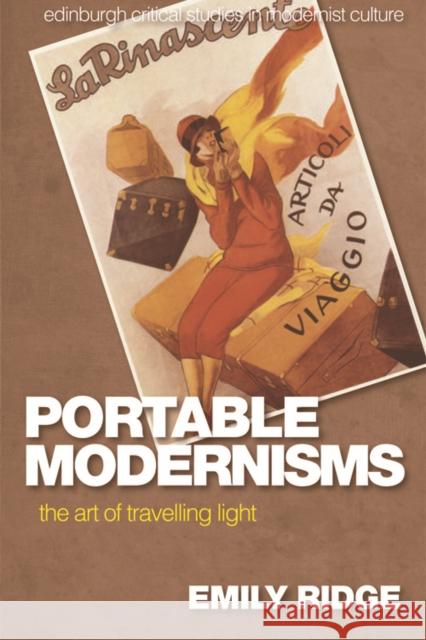Portable Modernisms: The Art of Travelling Light » książka
Portable Modernisms: The Art of Travelling Light
ISBN-13: 9781474419598 / Angielski / Twarda / 2017 / 224 str.
Portable Modernisms: The Art of Travelling Light
ISBN-13: 9781474419598 / Angielski / Twarda / 2017 / 224 str.
(netto: 489,77 VAT: 5%)
Najniższa cena z 30 dni: 402,99
ok. 22 dni roboczych.
Darmowa dostawa!
Luggage is an overlooked detail in the stock sketch of the expatriated modernist writer from the valise-fashioned desks of both James Joyce and Vladimir Nabokov to the lost manuscript-laden cases of Ernest Hemingway and Walter Benjamin. While the trope of modernist exile has long been spotlighted, little attention has been given to the material meaning of this condition. What things and objects do modernism's exiles and emigres carry with them and how does the act of carriage enter into the modernist picture more broadly? What are the implications and historical resonances of a portable outlook, particularly from the angles of gender, wartime conflict and character conception? Above all, how far does such an outlook impact upon artistic vision? Portability represents the simultaneous transportation and repudiation of domesticity and the home, those key frames of reference in the nineteenth-century novel. This book examines the multifarious ways in which the emergence of a modern culture of portability prompts a radical, if often problematic, departure from Victorian architectural conceptions of fiction towards more movable understandings of form and character.











